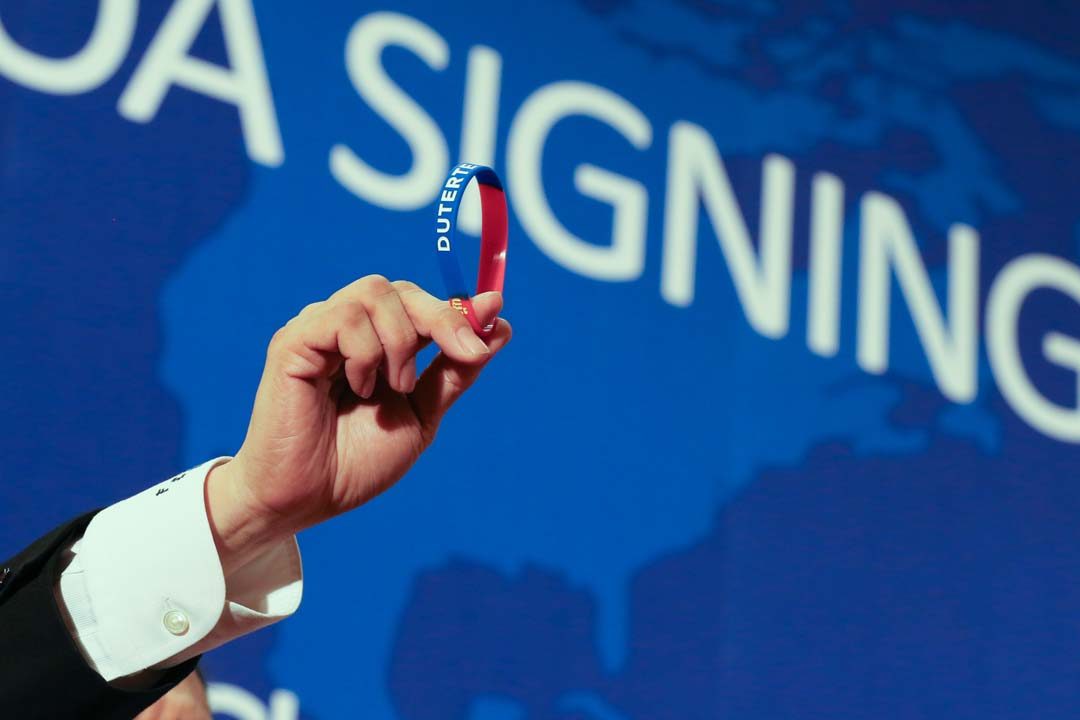SUMMARY
This is AI generated summarization, which may have errors. For context, always refer to the full article.

MANILA, Philippines – Presidential Spokesman Ernesto Abella downplayed the documents the government has signed with Chinese companies hounded by a shady track records.
“Those MOUs are simply understandings that they can submit feasibility studies which will still be subject to public hearings and necessary processes,” said Abella during a Palace briefing on Friday, October 28.
He said the MOUs are “not necessarily commitments to contracts.”
The deals between government agencies and various Chinese companies were made during President Rodrigo Duterte’s state visit to Beijing, China.
Most of these deals are MOUs that are not legally binding and allow the Philippines to consider other interested companies.
“There are no hard and fast rules that say ‘yes’ we have to accept this particular company,” said Abella.
But the Chinese companies which signed on to these MOUs drew attention because of their questionable track records.
China Railway Engineering Corporation, for instance, is a company that signed an MOU to invest $2.5 billion for infrastructure deals that could include the Mindanao railway.
But China Railway was the contractor of a Vietnam rail project hounded by a string of accidents – including falling rails and the collapse of scaffolding – which killed several people.
Another Chinese company, China Communications Construction Company Limited (CCCC), scored 5 MOUs with private companies and government agencies like the Bases Conversion and Development Authority.
Among these MOUs is the development of a Davao port, bus rapid transit system between Fort Bonifacio and the Ninoy Aquino International Airport, and the Subic Seaport-Clark Airport cargo train.
The World Bank banned CCCC and all its subsidiaries from engaging in any of its road and bridge projects until January 12, 2017 due to “fraudulent practices under Phase 1 of the Philippines National Roads Improvement and Management Project.” – Rappler.com
Add a comment
How does this make you feel?
There are no comments yet. Add your comment to start the conversation.